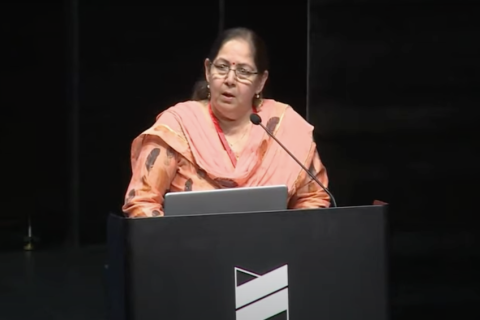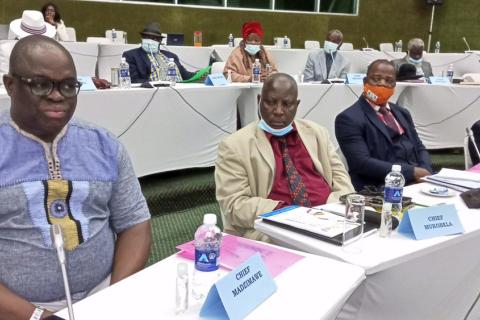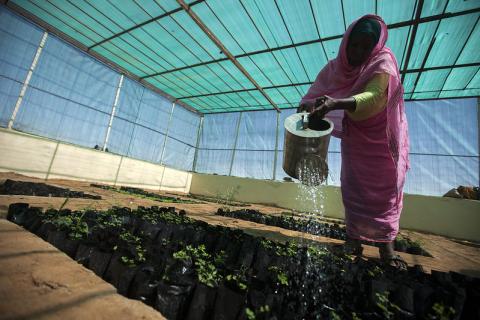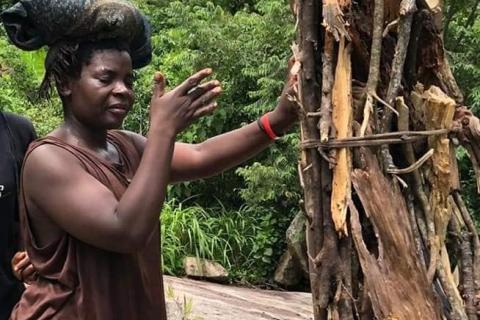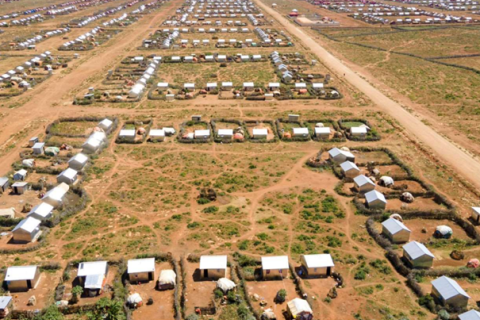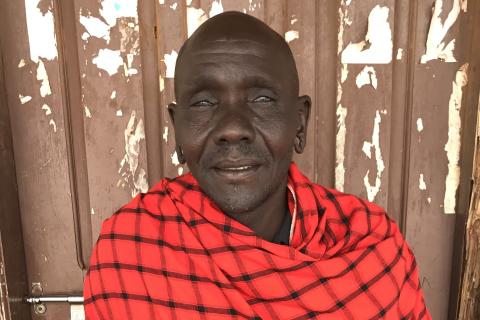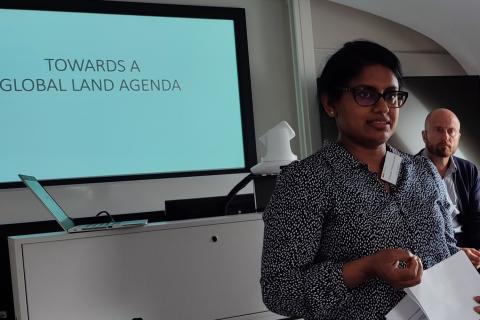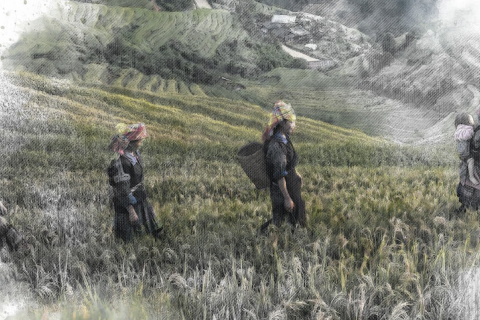Beyond land tenure, youth land rights fosters socioeconomic development
Africa is the youngest continent in the world, with a median age of around 20. This rising generation of youth presents an enormous opportunity for socio-economic development. But for Africa’s young people to unlock their full potential, they need full enjoyment of land rights – a cornerstone for economic opportunity and social empowerment.
Breaking Ground: Professor Anju Vali Tikoo's Call for Gender Justice in Land Governance
Professor Anju Vali Tikoo, a distinguished academic with a career spanning over three decades, delivered a passionate and incisive keynote at the 8th India Land and Development Conference (ILDC). Her address, a clarion call for gender inclusivity in land governance, explored the intersection of law, policy, and lived realities for women in India. With her deep-rooted knowledge of legal frameworks and her personal experiences, Prof. Tikoo brought to light the systemic barriers that continue to marginalize women in matters of land ownership and decision making.
UN General Comment No. 26/2022: (Re-)positioning corruption as a land rights concern
Current global developments in the land and human rights spheres show a progressive shift to focus on previously ‘unpopular’ subjects like corruption. The most recent milestone in this regard was the adoption of a General Comment on land and economic, social, and cultural rights (E/C.12/GC/26) by the United Nations Committee on Economic, Social, and Cultural Rights (UN CESCR) in December 2022.
Traditional authorities need a clearer role in land governance
Traditional authorities in Zambia complain that the government does not consult them when land is allocated for investment projects, while communities say chiefs are neglecting their interests. Jesinta Kunda of Zambia Land Alliance says more clarity is needed on the role of traditional authorities, in law and practice, to ensure large-scale investments in agriculture, mining and other sectors are governed better – particularly in light of the rising demand for critical minerals found in Zambia. She urges the government, traditional leaders and citizens to seize the opportunities presented by current legal reforms in Zambia to create change.
Mining contract transparency improves local planning in Mali
In Mali, a civil society coalition worked with communities to achieve greater transparency on gold mining contracts and to hold authorities and companies to account. Their aim: to turn Mali’s mining sector into a lever for socio-econmic development and improve living conditions around mining sites.
Nouhoum Diakite charts a success story, with limitations…
Incorporating Climate Considerations Into Investment Assessment Processes: Guidance for National and Local Governments
Climate change poses an existential threat to ecosystems, with potentially far-reaching impacts on agriculture, forestry, wind and solar energy, and other land-based investments. These investments can also further exacerbate detrimental climate change impacts if they are not sustainably implemented.
Navigating Malawi's Land Laws: Unravelling Colonial Legacies and Customary Challenges
The article examines the challenges in Malawi's land governance, tracing issues back to colonial legacies and addressing contemporary problems in customary land practices. Despite amendments to incorporate indigenous people and customary laws, challenges persist, particularly in ownership claims tied to prevailing customary law in which marriage systems play a central role. The journey towards reform began in 1996, resulting in the Malawi National Land Policy in 2002, aiming for tenure security and sustainable land use. The Customary Land Act (amended) of 2022 faces challenges, including potential land grabs by wealthy Malawians. Women and children's rights in land ownership are often overlooked, with discriminatory practices persisting. Striking a balance between decolonisation and cultural preservation is crucial for achieving social justice in land laws.
Understanding the link between Climate & LAND-at-scale country projects - Sustainable Solutions for Rural-Urban Migrants in Baidoa, Somalia
As part of a scoping study titled Land Governance for Climate Resilience: A review and case studies from LAND-at-scale projects headed by Richard Sliuzas, Emeritus Professor, University of Twente, IOM explored how climate plays a role in the UN-led Saameynta Joint Programme in Somalia. In this context, climate change is increasingly recognized as a multiplier of insecurity and fragility, where climate-related sudden and slow-onset disasters are driving people to leave their land and migrate. While migrating allows people to find alternative livelihoods and enhance their climate resilience, it can also be associated with instances of maladaptation to climate change. As such, this case highlights durable solutions in climate-driven urban sprawl in Baidoa.
People are hungry for this knowledge
By Peter Sangeyon, Gender and Land Champion, WOLTS Project Tanzania
From 1995 to 2005 I was the village chairman, and I was a ward councillor for ten years after that. I was very pleased when the community selected me to be a WOLTS gender and land champion.
Towards a Global Land Agenda: Shaping the Future of Land Governance
In a world grappling with numerous challenges related to climate change, socio-economic issues, and migration, the significance of land cannot be overstated. Land is not just a concern for the land community but for all communities, as it holds the potential to address critical global issues. Recognizing the need for a comprehensive approach to land governance, a global land agenda is being proposed. This blog explores the origins, objectives, and actions required to pave the way for effective land governance on a global scale.



